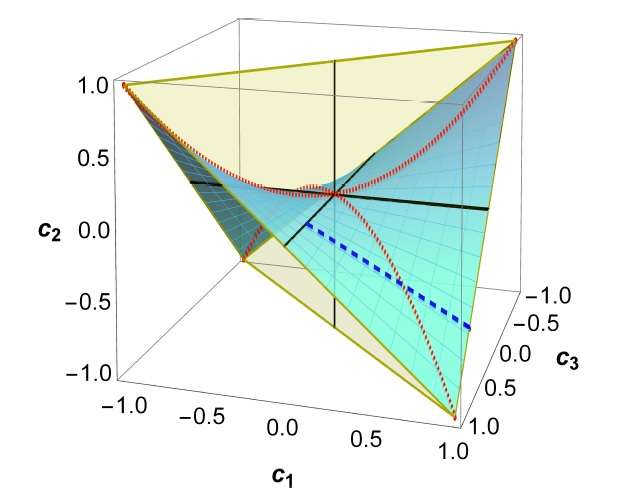April 13, 2015 report
Best of Last Week – A way to measure variations in the speed of light, a slower universe and plucking hair

(Phys.org)—It was a big week for physics. First, a trio of researchers proposed a method to measure variations in the speed of light—in alternative theories of cosmology where it has been theorized that time and space can vary. Also, another team showed that the "quantum freezing phenomenon" is universal—this describes conditions in which quantum correlations can be "frozen" in a constant state and remain that way in the presence of noise. Meanwhile another team suggested that "unparticles" may provide a new path to superconductivity—the hypothetical form of matter, the researchers suggest, could play a key role in mediating superconductivity.
Also, a team of astrophysicists working at the DOE's Fermilab suggested that the absence of a gravitational-wave signal extends the limit on the knowable universe—they are working with equipment capable of sensing gravitational waves at frequencies in the range of a million cycles per second. Also, work by two different teams suggested that the acceleration of the expansion of the universe might not be quite as fast as theorists have thought—new data has come to light indicating that supernovae used to measure distances in the universe are more diverse than thought.
In other news, researchers at Stanford University have developed an ultra-fast charging aluminum battery that offers a safe alternative to conventional batteries—they say it is less expensive, too. Meanwhile another team at Virginia Tech announced a new discovery that may be a breakthrough for hydrogen cars—a new way to create fuel cells using a biological method.
A team of bio-researchers discovered a master protein that enhances learning and memory—similar, they say, to other proteins that allow for enhanced physical abilities. And another team has built a fully functional computer that is about the size of a grain of rice, which portends a time in the near future when computers may be embedded in virtually everything around us.
And finally, for those people worried about losing their hair as they age, a team of researchers is plucking hair to grow hair—they found that plucking hair in a certain pattern on mice induced new growth in the surrounding area—evidence of environmental circumstances causing the body to react in unpredictable ways.
© 2015 Phys.org





















